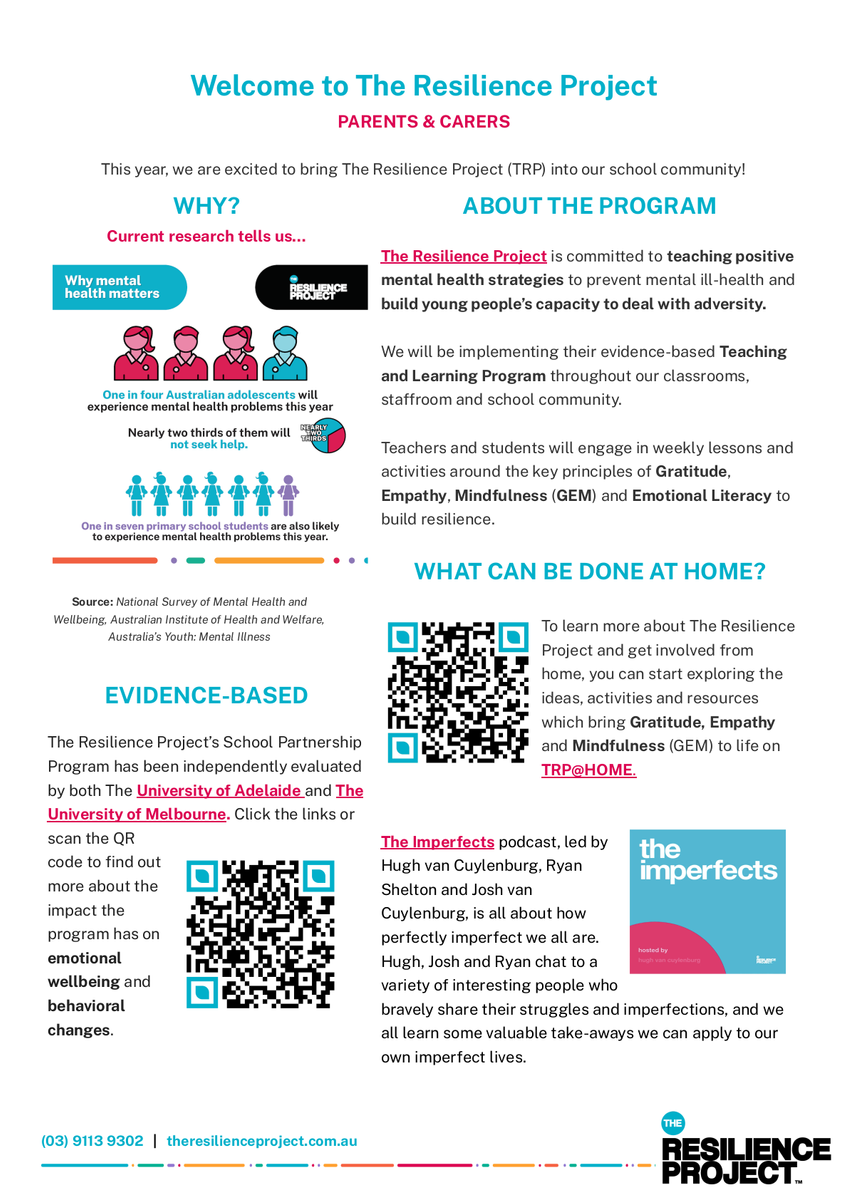Assistant Principal - School & Student Operations
Dina Becvinovski

Assistant Principal - School & Student Operations
Dina Becvinovski
Throughout 2024, we will be working closely with The Resilience Project to support the wellbeing of our school community.
The Resilience Project delivers emotionally engaging programs and provides evidence-based, practical strategies to build resilience.
Our Partnership Program consists of online presentations and weekly lessons for students, professional development for staff, and Parent & Carer Hub (inc. digital presentations) for our parent and carer community.
Over the coming weeks, we’ll be sharing the Parent & Carer Hub with you. The videos are 5-10 minutes long and will walk through the key pillars of resilience: Gratitude, Empathy & Mindfulness. You’ll hear stories and be introduced to activities to show how these strategies can support our kids' learning and development, and also support you as parents and carers.
This program is an important part of our school’s effort to look after the mental health of our community. View the first presentation of the series here:
Part 1: Meet Martin and learn about The Resilience Project
We will be in touch to share the remainder of the program, including research and wellbeing activities to integrate into day to day life. For mental health resources and support information, click the link below:


Showing up for school has a huge impact on a student’s academic success starting in kindergarten and continuing through secondary school. Even as children grow older and more independent, families play a key role in making sure students get to school safely every day and understand why attendance is so important for success in school and beyond.
Did you know?
What you can do
Make school attendance a priority
Help your child stay engaged
Communicate with the school
As helpful and powerful as information technology might be, in the hands of our students, it does come with its inherent risks of misuse, overuse and misadventure. To have parents well informed and confident to provide a safe home environment and responsible use of technology, here are some helpful links and information to support you as a family.